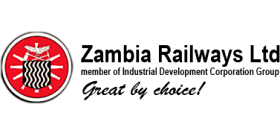 Zambia Police and Zambia Railways Unite to Safeguard Vital Rail Infrastructure and Boost Trade
Zambia Police and Zambia Railways Unite to Safeguard Vital Rail Infrastructure and Boost Trade
A new era of collaboration has commenced in Zambia’s transport sector following the signing of a Memorandum of Understanding (MoU) between the Zambia Police Service (ZP) and Zambia Railways Limited (ZRL). This landmark agreement formalizes joint efforts to combat vandalism, theft, and encroachment on railway property, strengthening the protection of critical infrastructure that underpins both national economic growth and regional trade.
During the signing ceremony, Inspector General of Police Graphel Musamba hailed the partnership as a pivotal step in addressing the persistent security challenges that have plagued ZRL’s operations. According to Musamba, this accord is more than a symbolic gesture—it marks a determined move to work closely with Zambia Railways Limited in protecting public infrastructure that is vital to Zambia’s economic development. The Inspector General emphasized that Zambia Railways plays a strategic role in enabling the country’s economic progress by facilitating the efficient movement of goods and supporting regional integration. The MoU, he noted, will serve as the foundation for practical collaboration in tackling the unique security threats faced by the railway sector.
The Zambia Police Service has pledged to fully support the implementation of the MoU’s provisions, signaling its resolve to enhance the safety of Zambia’s rail infrastructure. This commitment is expected to reassure investors, transport operators, and regional partners who rely on the reliability and security of the country’s railway network for the movement of bulk cargo and transit trade.
ZRL Managing Director Eng. Cuthbert Malindi echoed the importance of the agreement, highlighting the urgent need to address a recent spike in vandalism and theft affecting the railway system. Malindi stressed that rail transport remains a cornerstone for Zambia’s economic development, providing a cost-effective solution for moving bulk goods and boosting regional trade links. With rising incidents of criminal activity targeting rail assets—including the theft of metal components and encroachment on railway land—ZRL turned to the Zambia Police for a formalized partnership that could deliver robust, sustained action against these threats.
Malindi underscored that the MoU not only reflects ZRL’s deep commitment to operational safety and security but also sends a clear message to the public: offenses such as vandalism and trespassing on railway land will be met with the full force of the law. The agreement is also expected to strengthen public confidence in the integrity of Zambia’s transport infrastructure, which is essential for attracting further investment and supporting the country’s ambition to serve as a regional logistics hub.
The newly signed MoU sets out a comprehensive framework for cooperation between the two institutions. Key objectives include the organization of joint patrols along the railway network, the implementation of targeted strategies to curb illegal scrap metal trading, conducting regular security threat assessments, and enhancing the investigation and prosecution of railway-related crimes. In addition, the agreement calls for joint public awareness campaigns and community engagement initiatives designed to deter potential offenders and foster a culture of respect for public infrastructure.
This partnership arrives at a critical time for Zambia’s rail sector, which is increasingly seen as a linchpin for the movement of mineral exports, agricultural produce, and manufactured goods both domestically and across borders. As African economies deepen their integration and trade corridors like the North-South and East-West axes gain prominence, the security and reliability of rail transport become ever more consequential. The MoU is expected to have positive ripple effects, supporting not only Zambia’s internal logistics but also its role in facilitating regional commerce.
For the African travel and transport industry, Zambia’s approach offers a model for harnessing inter-agency collaborations to tackle infrastructure vulnerabilities. The experience demonstrates that holistic strategies—combining law enforcement, corporate commitment, and community engagement—can yield more resilient and efficient transport systems. As railways regain their position as a preferred mode for bulk and long-distance cargo movement, ensuring their safety will be integral to the continent’s broader ambitions for sustainable development and competitive trade logistics.
Looking ahead, the success of this partnership will depend on consistent implementation, transparent communication between stakeholders, and continuous adaptation to emerging threats. Travel sector professionals and logistics operators across Africa will be watching Zambia’s experience closely, as the outcomes could inform similar collaborations in other countries where infrastructure security is a growing concern.
The Zambia Police Service and Zambia Railways Limited’s united front against rail-related crime represents a proactive stride toward safeguarding the arteries of national and regional commerce. As Zambia fortifies its infrastructure, the benefits will resonate across the travel, logistics, and trade sectors—strengthening the nation’s economic foundation and enhancing its role as a gateway for African growth.
